Dietary fibers are derived from the edible parts of plants that are not broken by human digestive enzymes. Fibers that are added to foods during processing, consist of individual unprocessed carbohydrates that have proven beneficial physiological effects in humans.
Types of dietary fiber
- Pulp - contained in bran, beans, peas, vegetable roots, cabbage, outer coating of seeds, apples;
- Pulp - contained in bran and whole grains;
- Polyfructose;
- Clay - contained in oatmeal, barley and legumes;
- Pectins - found in apples, strawberries and citrus fruits;
- Lignin - found in vegetable roots, corn, fruits with edible seeds (such as strawberries );
- Resistant starch - found in ripe bananas, potatoes.
The function of a particular dietary fiber is determined by whether it is classified as soluble or insoluble. Soluble fibers, such as the type contained in oat bran, are known for their ability to lower cholesterol levels and normalize blood sugar levels.
On the other hand, insoluble fiber, such as the type contained in wheat bran, is known for the ability to promote bowel regularity. Very often, the vegetable sources of fiber contain both types - soluble and insoluble fiber.
Functions of dietary fiber
- Reduce cholesterol - like soluble fiber, dietary fiber reduces cholesterol by reducing the absorption of dietary cholesterol. In addition, viscous fibers are combined with bile acids, which are compounds produced by the liver from cholesterol and are necessary for the proper absorption of fat;
- Normalizes blood sugar - viscose fiber helps normalize blood glucose by slowing the rate at which food leaves the stomach and by delaying the absorption of glucose after meals. Viscose fiber also increases insulin sensitivity. As a result, high doses of viscose fiber play an important role in the prevention and treatment of diabetes type 2;
- Promote bowel regularity - some types of fiber are called fermentable fiber, as they are fermented by the "friendly" bacteria that live in the colon. Fermentation of dietary fiber in the colon produces a fatty acid called butyric acid, which serves as nourishment to the cells of the colon and helps to maintain the health and integrity of the colon.
Many foods contain 5 or more grams of fiber and taking them in their entirety, unprocessed, is extremely beneficial for your health. In the course of processing, foods lose part or all of their fiber content.
Dietary fibers, especially those contained in fruits, beans, oats and bran, decrease the absorption of medicine used to lower cholesterol by binding the drug in the gastrointestinal tract. Dietary fiber also reduces the absorption of hydralacin, digoxin and lithium.
Diets high in dietary fiber may improve glucose control in people with type 2 diabetes, thus leading to diminished insulin or oral medications to lower glucose needed to control blood sugar.
Certain medications, including pain medication (eg, codeine) and calcium channel blockers (eg, verapamil) may cause constipation. Increased intake of dietary fiber may reduce the constipation caused by these drugs.
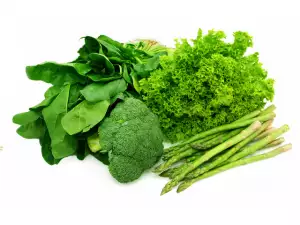
A rich fiber intake can play an important role in the prevention and/or treatment of the following diseases: cancer, cardiovascular disease, colon cancer, constipation, diabetes, diverticular disease, high cholesterol, irritable bowel syndrome, obesity, etc..
Sources of dietary fiber
Excellent food sources of dietary fiber include: plants in the turnip family, jujube plants, cauliflower, broccoli and raspberries. Flaxseed is also an excellent source of dietary fiber.
Many good sources of dietary fiber include: lettuce, celery, spinach, fennel, green beans, eggplant, blueberries and strawberries.
Good sources of dietary fiber are: cucumber, apricot, navy beans, grapefruit, rye, sweet potatoes, sugar beet, buckwheat, shiyttake mushrooms and oats.
Deficiency of dietary fiber
Deficiency of dietary fiber in the diet can lead to many stomach problems - gas, constipation and accumulation of toxic substances in food that is not properly processed. This in turn can cause serious consequences, like obesity and the development of diseases.
Overdose of dietary fiber
Intake of dietary fiber in the amount of more than 50 grams per day can cause intestinal obstruction in people susceptible to this. For most people, however, this amount of fiber will lead to improved intestinal health. Excessive intake of fiber can also lead to fluid imbalance, leading to dehydration.
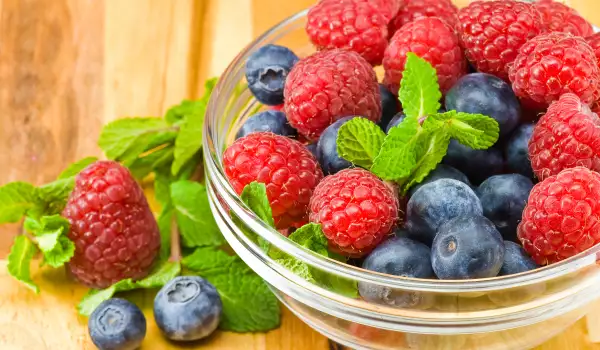
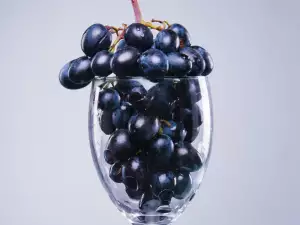
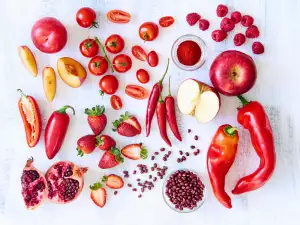


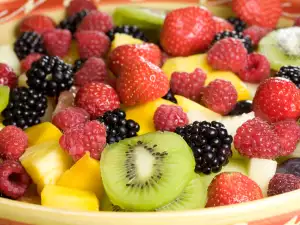









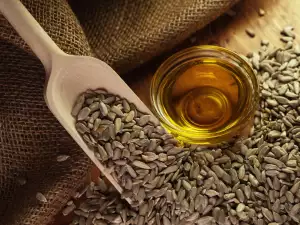




Comments